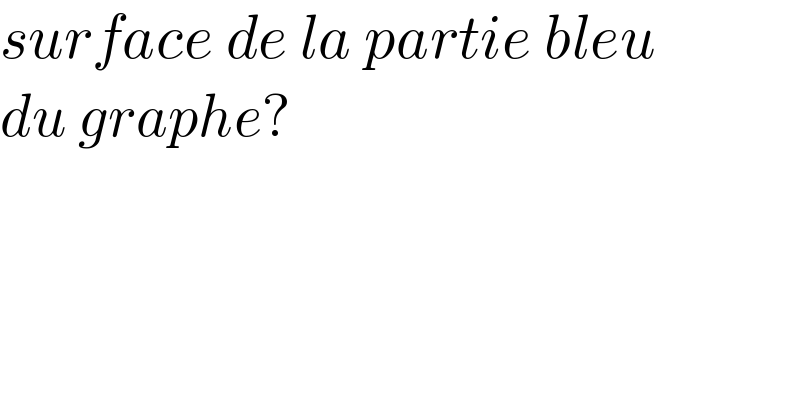
Question and Answers Forum
Question Number 183426 by a.lgnaoui last updated on 25/Dec/22

Commented by a.lgnaoui last updated on 25/Dec/22

Commented by cherokeesay last updated on 25/Dec/22

Commented by a.lgnaoui last updated on 26/Dec/22

Answered by Acem last updated on 26/Dec/22
![Surf.= (1/4) + ∫_1 ^( (3/2)) ((3/2) x −x^2 )dx = (1/4) +[ x^2 ((3/4) −(1/3) x)]_1 ^(3/2) = (1/4) + (9/(16)) − (5/(12)) = (1/4) +(7/(48)) = ((19)/(48 )) un^2](Q183449.png)
Commented by a.lgnaoui last updated on 26/Dec/22

Answered by mr W last updated on 26/Dec/22
![a way without integral: x(x−1)−0.5x=0 ⇒x^2 −1.5x=0 ⇒A_1 =(([(−1.5)^2 −4×1×0]^(3/2) )/(6×1^2 ))=((27)/(48)) x(x−1)−0=0 ⇒x^2 −x=0 ⇒A_2 =(([(−1)^2 −4×1×0]^(3/2) )/(6×1^2 ))=(1/6) A_(blue) =A_1 −A_2 =((27)/(48))−(1/6)=((19)/(48)) ✓](Q183462.png)
Commented by Matica last updated on 27/Dec/22

Commented by mr W last updated on 27/Dec/22

Commented by Matica last updated on 27/Dec/22

